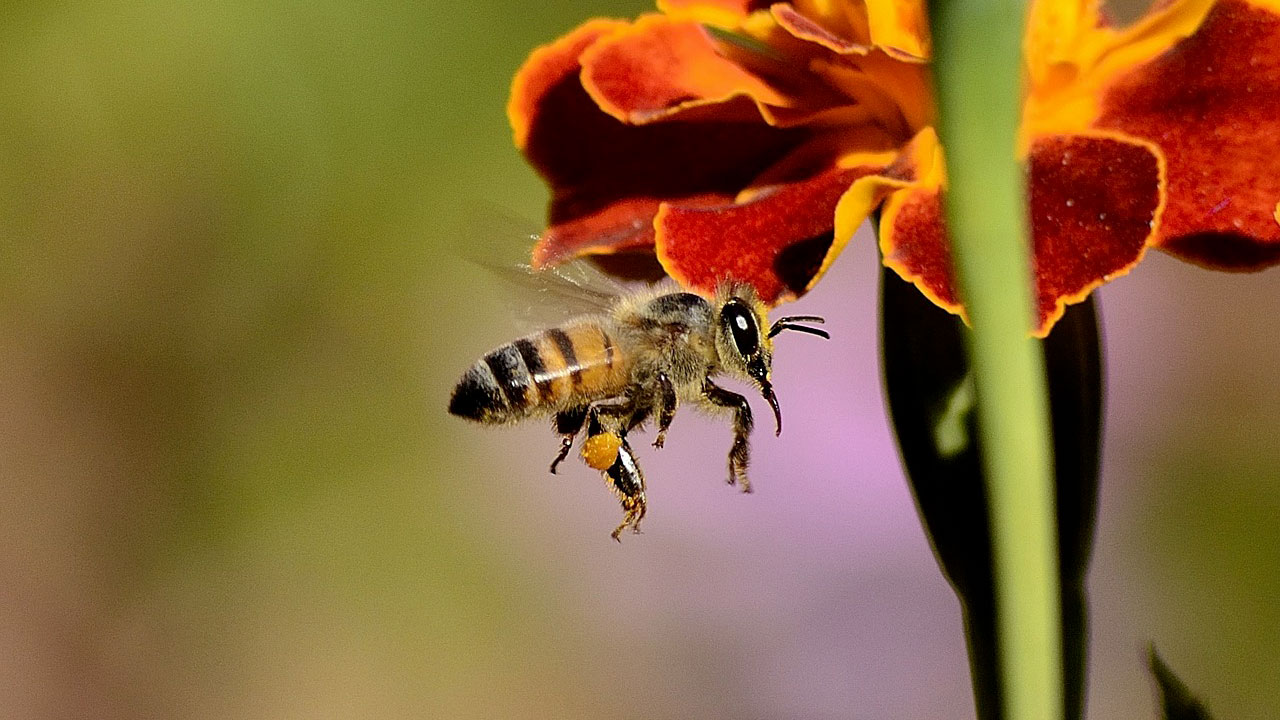The Bees Need Our Help
Nov 15th 2016
For every three bites of food you take, one was pollinated by honey bees. Last winter, beekeepers reported losing over 40% of their hives. Bees are more than just the “canaries in the coal mine”, warning us of a frightening threat to our food. Bees are a critical link to the future of our food production.
You may have heard that pests, disease, and climate change are the main causes of the bee die off. A growing body of evidence points to one of the world’s most popular class of pesticides neonicotinoids. These “neonics” are designed to kill pest, but they don’t distinguish between harmful insects and beneficial ones, like bees. Neonics are used on over 140 commercial crops! As a result the bees that are needed to pollinate organic crops are on the brink of extinction.
Bees are responsible for pollinating many of the crops making up our food supply. Today multinational companies have come up with a plan to do away with the need for a pollinator by having farmers buy new GMO seed every year from these large companies. The touted advantages of using GMO seed: 1. guaranteeing identical herbicide resistant crops year after year, 2. reduce crop damage from weeds, pest, and insects by using this herbicide resistant seed, 3. increased yields on the same acreage. These claims are debatable.
This increased application rate of herbicides has affected the ability of the honey bees to survive. Without honey bees organic gardeners and farmers are seeing decreasing yields from their heirloom seed crops. Here are some ideas of what you can do to help the plight of the honey bees.
- Plant any of the flowers below in your garden using organic starts or heirloom seed to provide a good food source and a safe haven for bees. Plant at least three different types of flowers to ensure blooms through as many seasons as possible.
- Summer time: cosmos, echinacea, and snapdragons
- Spring time: Crocus, hyancinth, and calendula are great for providing the bees with great blooms to feast on
- Fall time: asters, zinnias, and goldenrod are late bloomers
- Use alternative pest control methods like landscaping with certain plants to attract beneficial insects
- Basil will help repel thrips, flies, and mosquitos
- Artemisia repels most insects and even some small animals
- Garlic when planted near roses will help repel aphids
- Marigolds are the most known plant for repelling insects
- Use natural organic pest control products.
- Read the labels on products (herbicides and pesticides) and steer clear of ones containing neonicotinoids.
- Tell your friends and fellow gardeners about the importance of bees and what they can plant to help them.
If you appreciate organic food products, steer clear of processed foods, and buy ingredients that are clearly labeled “USDA Certified Organic”, or buy from a local grower that doesn’t use herbicides.
Grow as much food as you can without the use of chemicals and your efforts to keep you and your family healthy will pay off. You don’t have to use chemicals in your garden to control weeds. It is an ongoing process however that can be done successfully by hand weeding, hoeing, and then applying a thick layer of organic mulch (seed free hay, grass clippings, or leaves work well) will help you avoid using any kind of chemical weed control product. Larger plants such as tomatoes, peppers, melons, squash, chard, and kale will shade weeds once they are 6-8 weeks old. Happy Gardening!

